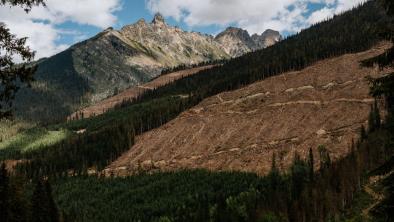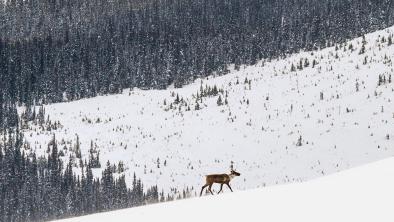Clayoquot Sound fish farm approval sparks lawsuit threat
Times Colonist

Proposed Clayoquot Sound site divides neighbouring First Nations
A Vancouver Island First Nation is considering a lawsuit to stop a new salmon farm site in Clayoquot Sound.
Federal and provincial approvals given to Mainstream Canada for a new site at Plover Point on Meares Island have also opened up a territorial dispute between Ahousaht First Nation, which is working in partnership with Mainstream, and Tla-o-qui-aht First Nation, which vehemently objects to the farm.
"This is actually a shared area between Ahousaht and Tla-o-qui-aht. There's an overlapping issue," said Tla-o-qui-aht councillor Terry Dorward.
Ahousaht Chief John Frank could not be reached on Tuesday.
An emergency meeting with Ahousaht is planned and Tla-o-qui-aht is "investigating legal options" to stop the Plover Point farm, Dorward said.
"Fish disease outbreaks and pollution could devastate our already stressed salmon runs and shellfish sites near the Plover Point site," he said.
"We will not allow governments and industry to run roughshod over our rights to clean water and sustainable fisheries."
There must be independent studies on infectious diseases before any more fish farms are considered in Clayoquot Sound, he said - "especially in an area that's under dispute."
Earlier this year, Mainstream destroyed all fish at its Millar Channel farm in Clayoquot Sound after confirmation of infectious haematopoetic necrosis virus, which can kill Atlantic salmon - the variety raised in fish farms - but is endemic among Pacific populations.
Mainstream spokeswoman Laurie Jensen said the new farm would improve environmental impacts as it would mean closing the Cormorant site, north of Meares Island.
It would also allow the other 13 sites in Clayoquot Sound to be fallow more often.
"This is a good thing, not a bad thing," Jensen said.
Mainstream and Ahousaht have a protocol agreement and more than 60 Ahousaht members work on Mainstream farms, but the company will not get involved in jurisdictional issues, Jensen said.
"We are doing business as usual and trying to stay out of the politics," she said. "That is between the two First Nations."
Tofino council and the Tofino-Long Beach Chamber of Commerce both passed motions opposing the new farm.
Meetings were held between chamber directors and the government, but their input seems to have been ignored, said Chamber of Commerce executive director Gord Johns.
"There is a saturation of fish farms in Clayoquot Sound," Johns said.
"We have seen outbreaks of diseases in the open-net fish farms and sea lice, and we should at least examine what happened before we look at increased density."
Chamber directors emphasized to government that it would be inappropriate to make a decision on Plover Point before the Cohen Commission on the decline of Fraser River sockeye makes its report at the end of this month, Johns said.
The approval has also alarmed environmental groups.
Bonny Glambeck, spokeswoman for Friends of Clayoquot Sound, said the site is within the UNESCO biosphere reserve and along the shores of a tribal park on Meares Island.
"We are concerned this could spread disease, sea lice and pathogens to wild fish," she said, noting that there are also clam beds nearby that could be harmed.
A letter of objection sent to Premier Christy Clark has been signed by Tla-o-qui-aht and environmental groups Friends of Clay-oquot Sound, Living Oceans Society, David Suzuki Foundation, Georgia Strait Alliance, Wilderness Committee, T. Buck Suzuki Foundation and Greenpeace.
The Plover Point site is the first new application approved since Fisheries and Oceans took over responsibility for salmon farms in 2010 and the first given provincial approval since 2008.
The province issues a licence of occupation that allows the farm to operate on Crown land and Fisheries and Oceans Canada has jurisdiction over licensing, fish health and habitat protection.
In an email response to questions, Forests and Lands Ministry spokesman Brennan Clarke said the application was referred to other agencies and local First Nations.
"No significant environmental impacts were identified and the intended use is appropriate under the Clay-oquot Sound UNESCO Biosphere Charter," he said.
Photo: Another open-net salmon farm on the BC coast. Photo by Sam Beebe (Flickr).


